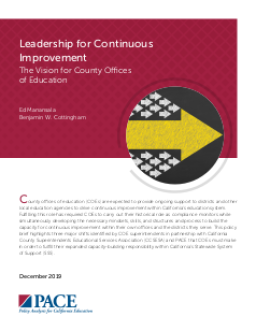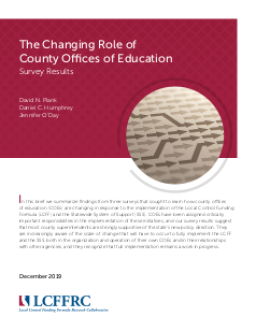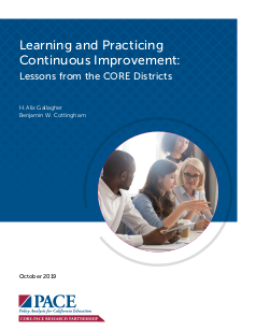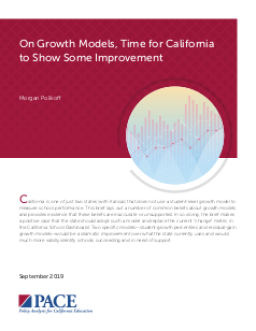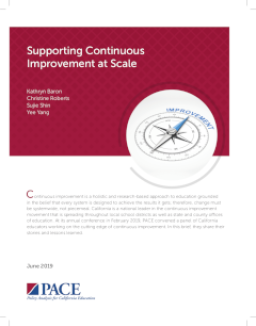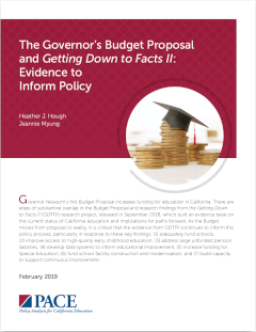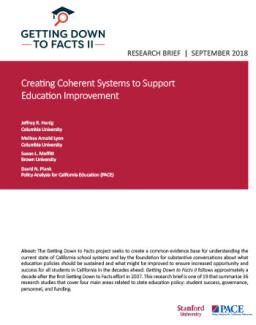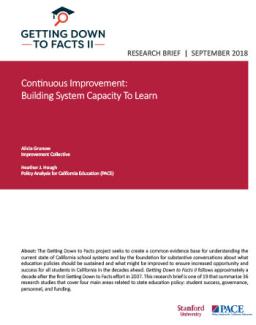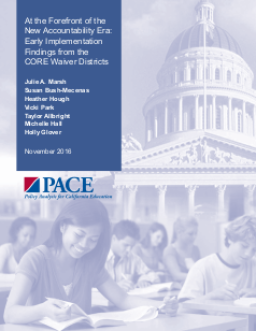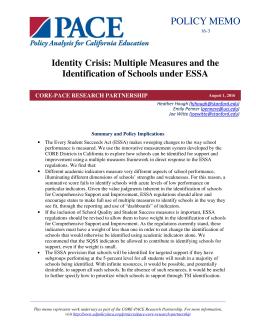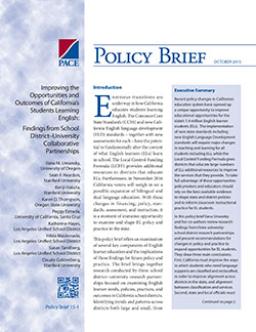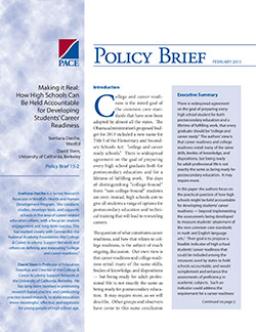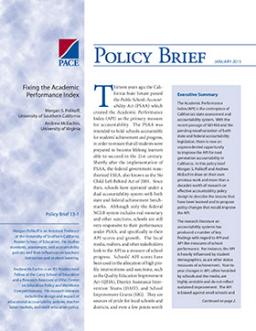Summary
Summary
Summary
Summary
Summary
Summary
This report updates previous research on California's Local Control Funding Formula (LCFF) using a 2019 poll of California voters. Despite increased awareness, over half of voters are unfamiliar with LCFF. Support for the policy remains high but has decreased. Participation in LCFF engagement has increased but remains low, particularly among low-income voters. Low-income communities may not be meaningfully engaged in LCFF decision-making.
Summary
Governor Newsom’s first Budget Proposal increases funding for education in California. There are areas of substantive overlap in the Budget Proposal and research findings from the Getting Down to Facts II (GDTFII) research project, released in September 2018, which built an evidence base on the current status of California education and implications for paths forward. As the Budget moves from proposal to reality, it is critical that the evidence from GDTFII continues to inform the policy process.
Summary
California's implementation of Common Core State Standards and Local Control Funding Formula requires new support systems for districts, including professional networks and the California Department of Education. Successful implementation requires multiagency cooperation and strategic management of relations with Washington.
Summary
Continuous improvement in education involves engaging stakeholders in problem-solving to discover, implement, and spread evidence-based changes that work locally to improve student success. California sees it as central to enduring education transformation. It requires an initial significant investment in time and money to make it a reality, but can improve education quality. However, California's data systems are inadequate for helping districts monitor progress, and more training and coaching are needed to build expertise for statewide implementation.
Summary
California and the US are undergoing a cultural shift in school accountability policies towards locally-determined measures of school performance. Lessons can be learned from the CORE districts, which developed an innovative accountability system, emphasizing support over sanctions, and utilizing multiple measures of school quality. The CORE districts' measurement system and collaboration hold promise for improving local systems, but efforts to build capacity remain a work in progress.
